Published Jun 11, 2024
Pitch a Space Tent: Why Every Star Trek Needs Camp
Star Trek would not be the Star Trek we know and love without embracing the camp.
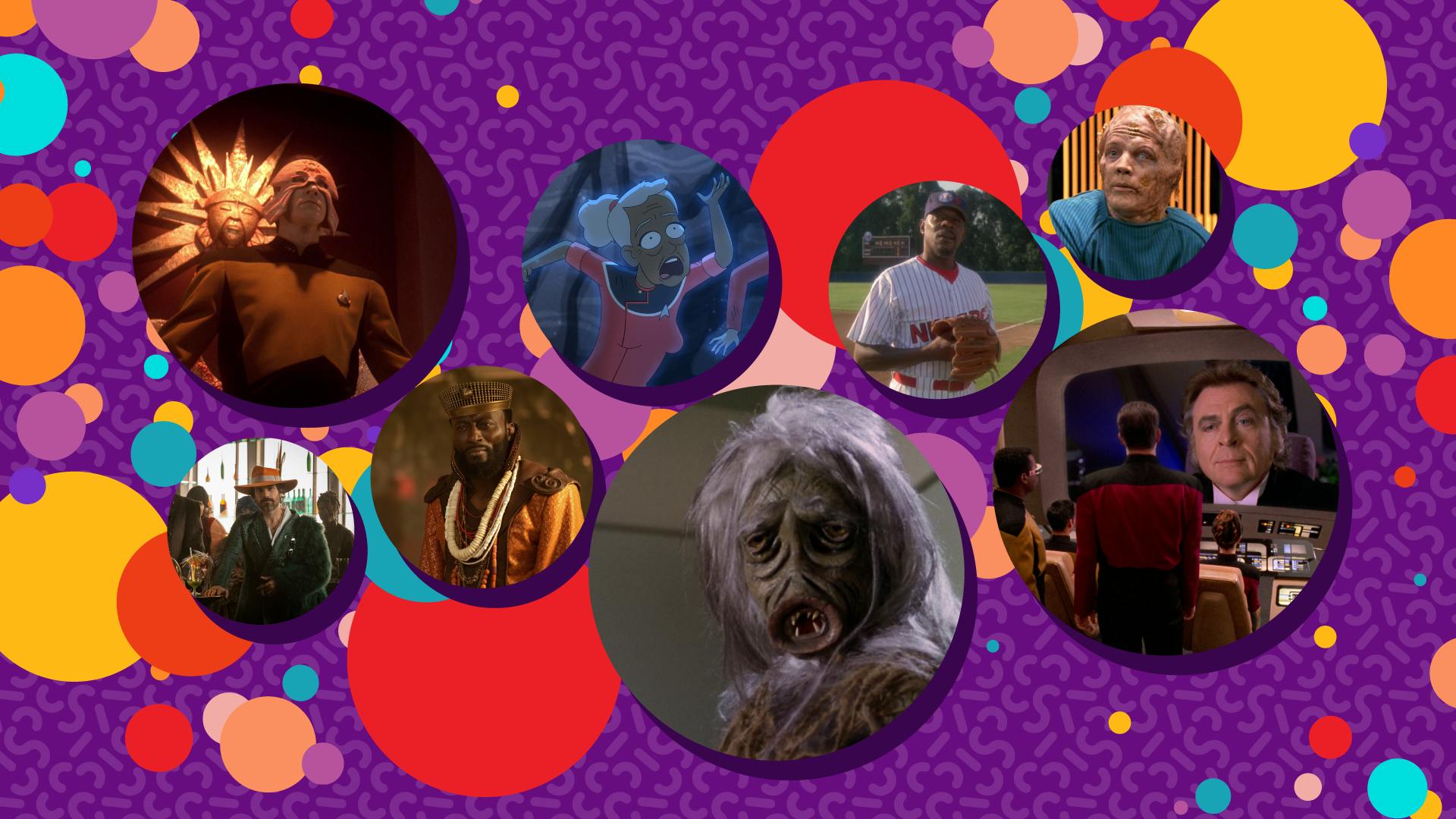
StarTrek.com
James T. Kirk's first official episode captaining the Enterprise told the story of a Salt Vampire who used shapeshifting to seduce and devour men. No, seriously. She even stole the appearance of Dr. McCoy's dead ex-flame to try to lick the salt off Bones' bones. That is how syndicated Star Trek began.
When people talk about Star Trek, they often wax poetically about the episodes that changed them. The kind with drama, gravitas, and moving monologues — the kind of story that sticks with you. But no matter how many unforgettable episodes you've loved in the Star Trek universe, the episodes surrounding those stories can be a tad... outrageous.
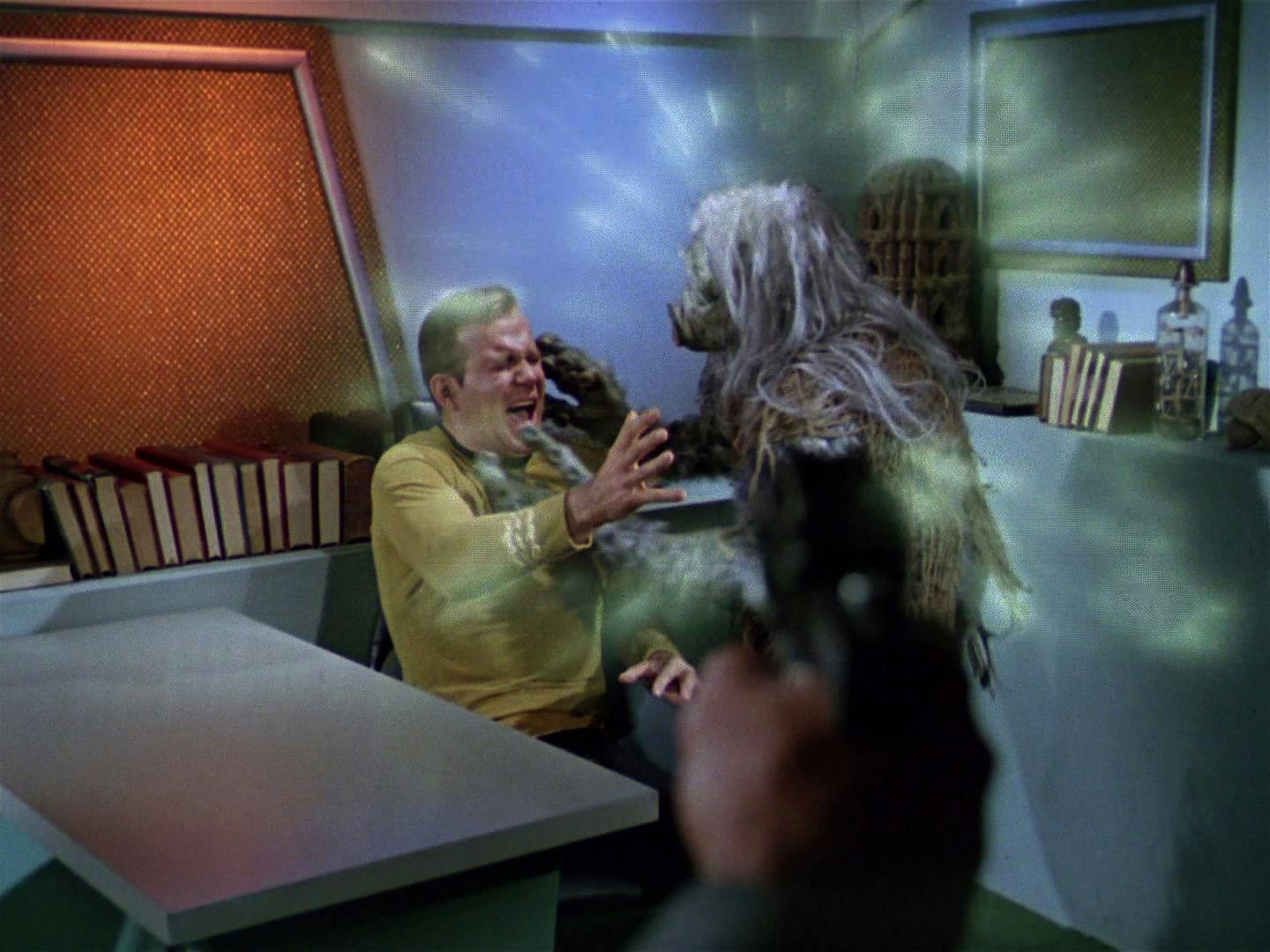
"The Man Trap"
StarTrek.com
Star Trek has always leaned into the inherent absurdity of science, space, and the unknown, from the morally gray choices of wartime to alien-gremlins fornicating and multiplying in your vents. Fans absolutely love to make fun of those gremlin episodes. It's a time-honored Trekdom pastime. And yet, the truth is that for as many essays and think pieces we have about those serious, hard-hitting episodes, they would not hit as hard without the gremlin to balance them out.
Star Trek would not be the Star Trek we know and love without embracing the camp.

"The Naked Now"
StarTrek.com
Let's take a moment for some context. "Camp" is a cultural term that has been in the queer zeitgeist since the late 1800s. In her 1964 essay "Notes on Camp," Susan Sontag describes the phenomenon as, "The hallmark of Camp is the spirit of extravagance — being 'playful' and 'anti-serious'." Most simply said, and based more on modern use of the word, Camp means a dedication to "a particular aesthetic or style characterized by being deliberately exaggerated, theatrical, ironic, and often kitschy/over-the-top." While it began its life in the queer vernacular, it has since been adopted by popular culture throughout the past few decades. As any Star Trek fan will know, Trek fashion alone could qualify for top-tier camp. But Star Trek's history of camp goes far beyond that.
It doesn't take long to find out that Star Trek has some delectably over-the-top offerings for campy episodes. "." "." "." "." "." Star Trek loves to put our favorite characters in absurd scenarios where they get to flex the lesser-known nuances of their personality. Sometimes in the worst cases of camp, said characters will look back at the episode they just survived and say "it never happened," a la "The Naked Now." But, of course, Star Trek fans will reference it for decades — even half-a-century. There's no avoiding Star Trek's camp, not when even was chock-full of it.
But campy episodes don't just exist to be a funny anecdote or some space hijinks with our faves.
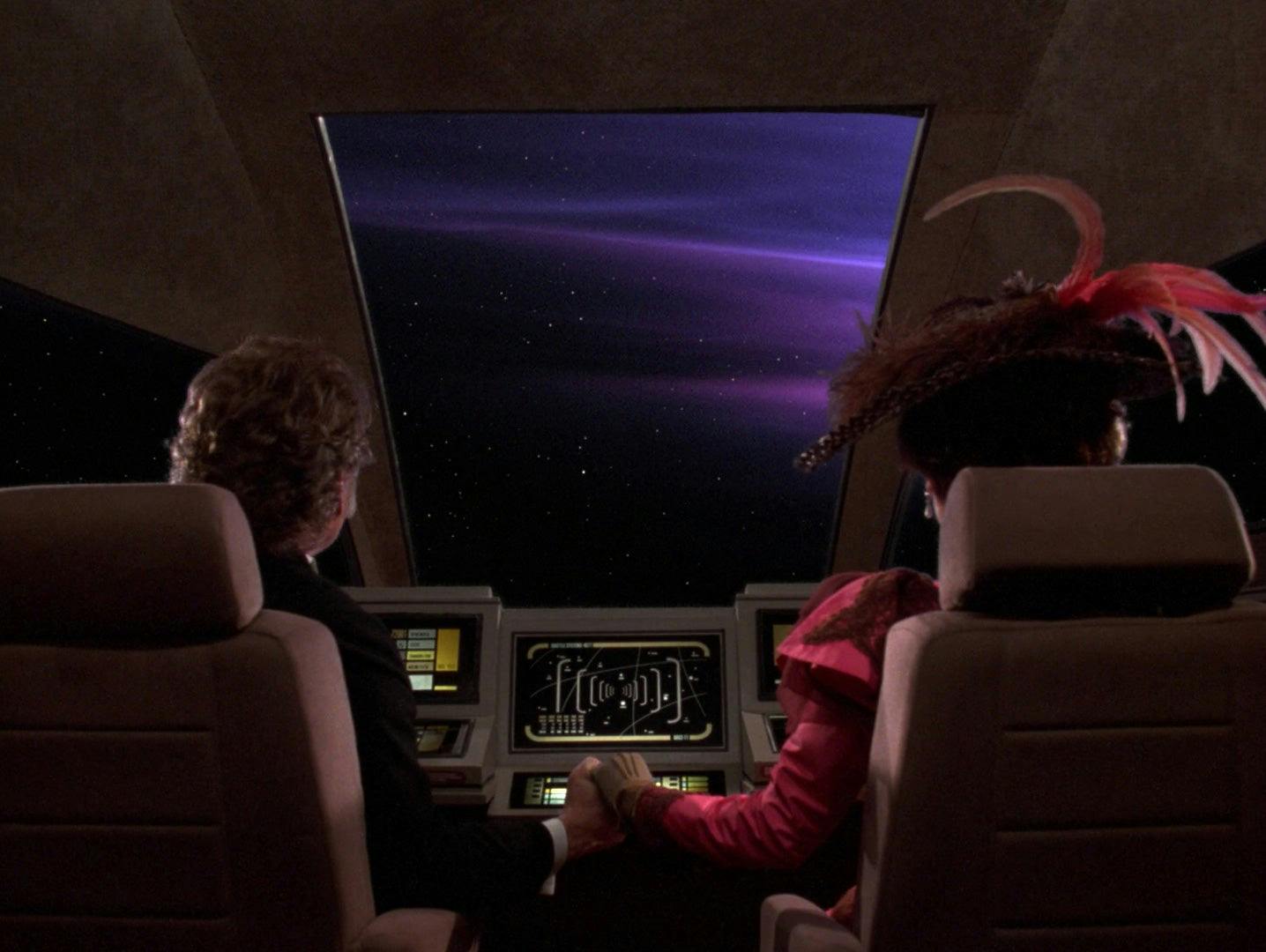
"Ship in a Bottle"
StarTrek.com
A notable phenomenon with Star Trek's campy episodes is that they often precede or succeed those heart-rending, life-changing episodes that Trek fans idolize. For example, "" — AKA where Picard gives his famous "there are four lights" line — is immediately followed by an episode where (AKA the Sherlock Holmes villain) takes over the ship because he wants to explore space (""). Yes, seriously. We get our most emotional highs right beside laughable, unbelievable camp. But why does this happen?
This leads us to another pertinent word to understand when discussing Star Trek camp — catharsis. In literature and creative spaces, catharsis is "the use of strong feelings to engage the reader in a type of emotional purification." This often includes taking viewers on a sort of emotional rollercoaster. Letting them feel the highs of laughter and joy as well as the lows of drama, angst, tragedy, and heartbreak. It's why, in stories, characters often have a night of revelry before a big battle. Before the Battle of Helm's Deep, Aragorn, Gimli, and Legolas had a heartfelt drink. In Mass Effect, Commander Shepard and co. always have their night of camaraderie, peace, and romance before the suicide mission. The highs help the lows feel more powerful, and vice versa.
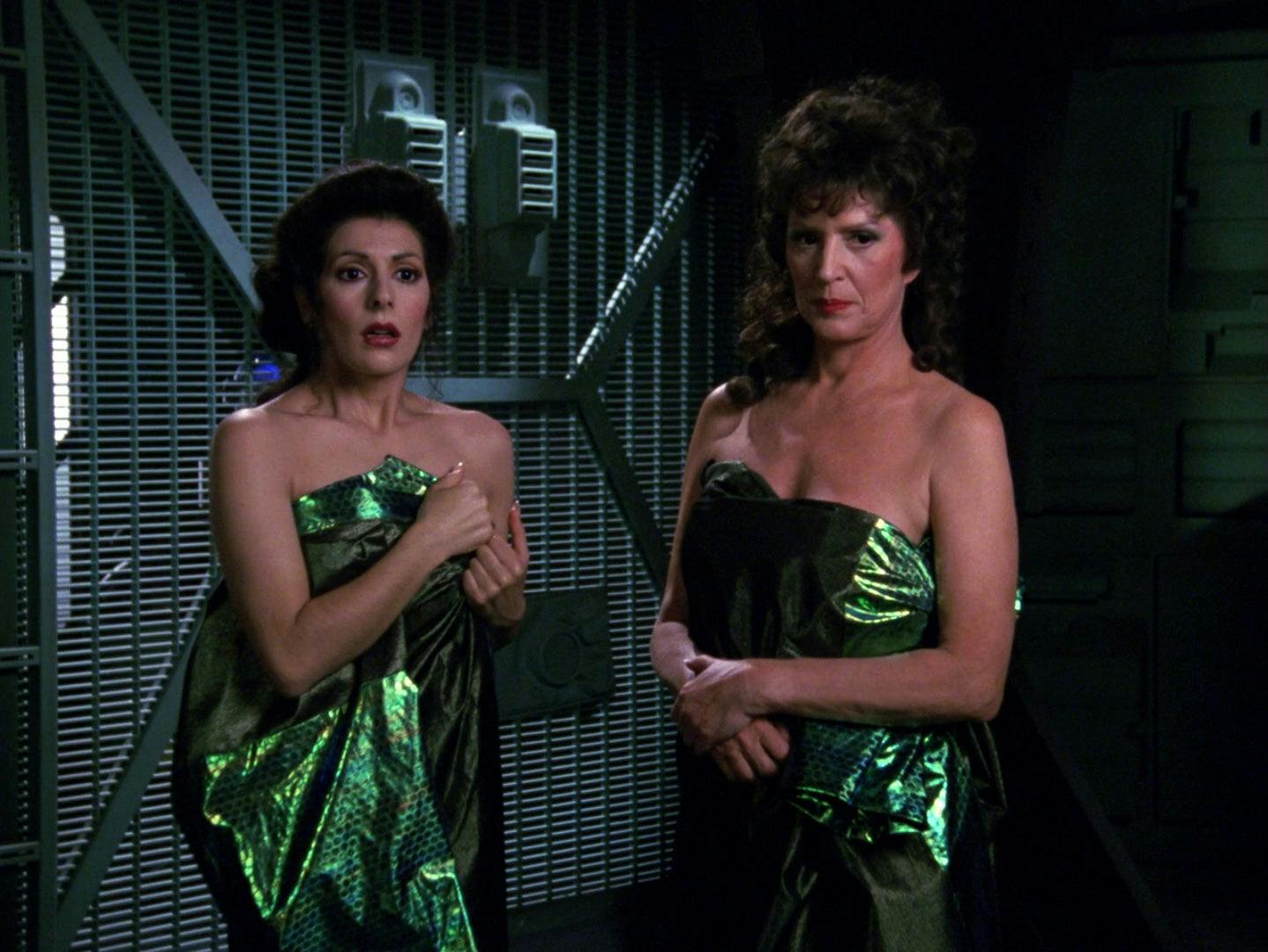
"Menage a Troi"
StarTrek.com
And when the drama can be so intense as in Star Trek, you can't reach true catharsis without serious camp.
This balance of camp-and-drama helps watchers feel like they're experiencing the full range of the characters' lives. They get to laugh and goof off with them, but also see them go through the worst of the worst emotional turmoil. For example, Counselor Troi is a serious psychologist who spends many episodes giving deep emotional insight, but then also gets kidnapped because a Ferengi thinks her mom is hot (""). Data has some of the most heart-rending episodes about what it means to be human, and then other times puts on a mask and pretends to be a sun god from a long-dead civilization (""). Proper catharsis makes even the fantastical, far-off characters of a futuristic sci fi adventure feel more relatable. More human. You see yourself in the people on-screen and love them all the more.
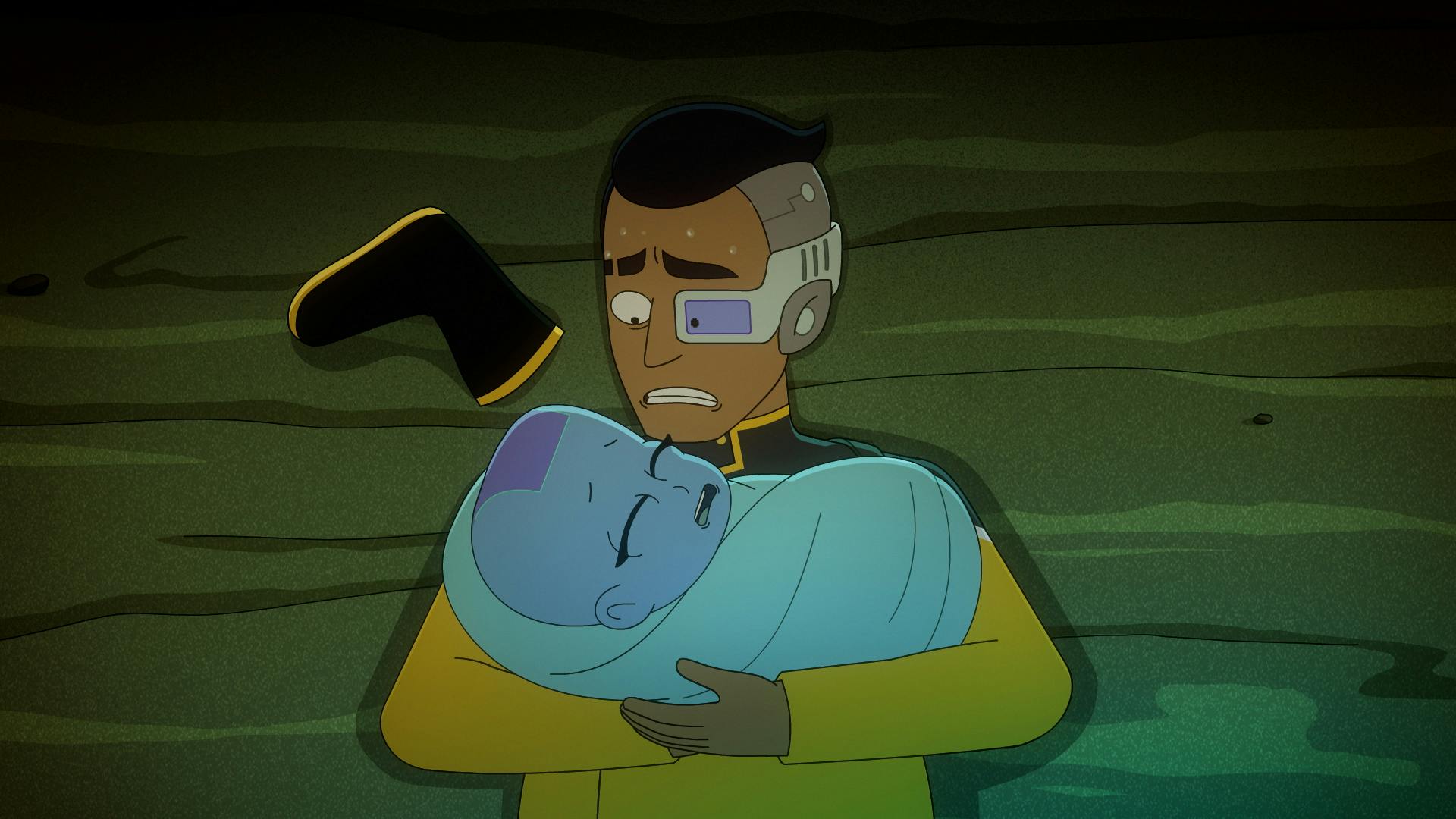
"Caves"
StarTrek.com
This is hardly a phenomenon of older Trek, either. Catharsis is important for Trek across all decades. In , the penultimate episode of Season 4 was the wonderfully goofy "" — a light-hearted story exploring the main foursome's evolving friend dynamic through different classic Star Trek "trapped in a cave" scenarios. Then the episode right after, we're thrust into in "."
Similarly, wedged in between Elnor's heart-wrenching abandonment in "" and Picard's struggles with Borg flashbacks in "," we have "." Excluding some devastating moments for Seven of Nine and Raffi, this episode includes gems like Picard, Rios, and Elnor dressing up in ridiculous costumes to try to trick criminals at a nightclub. From Picard's eye patch to Rios' feathered hat and umbrella drink, it's camp all the way.

"The Elysian Kingdom"
StarTrek.com
Taking this concept even further, there are some episodes that do the seemingly impossible — they perfectly balance both drama and camp to make something better than both. In ' "," Dr. M'Benga is thrown into the joyous absurdity of his crewmates acting out his daughter's favorite bedtime story. But at its heart, beyond all the princess singing and villainous queens, about grief and letting go.
Given the beloved legacy and impact of these episodes, not only should we love Star Trek's camp, but hope for more of it. More salamanders, more ghost boyfriends, more weird omniscient space entities throwing temper tantrums. Because the more we encourage Trek writers to explore the absurdity of space, the better its beauty, drama, and heartbreak can be.





